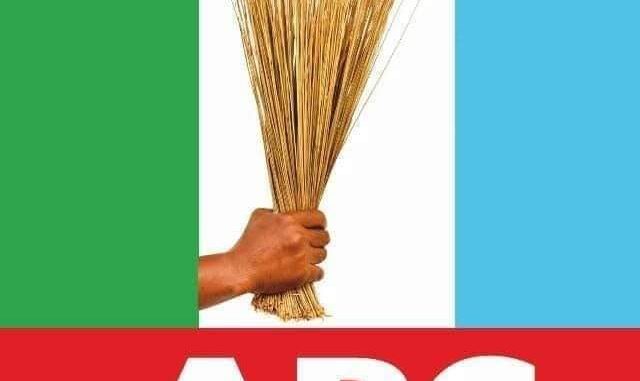
There are indications the powers of the National Chairman of the ruling All Progressives Congress (APC) may be drastically whittled down in the new constitution proposed by the Constitution Review Committee (CRC) of the party.
The draft copy of the constitution, which is subject to ratification of the National Convention slated for next month, also provides for inauguration of an Advisory Council in replacement of the Board of Trustees (BOT).
The council will serve as the conscience of the party.
APC Caretaker Extra-Ordinary Convention Planning Committee (CECPC) on March 2, 2021 inaugurated an 8-man CRC under the Chairmanship of Professor Tahir Mamman (SAN) to review the Constitution of the party to accommodate the new dynamics of managing a ruling party.
The Odigie Oyegun-led National Working Committee (NWC) in 2017 set up the Muniz Banire- Committee that carried out similar exercise but never implemented the Committee’s report.
Checks on the committee showed it has since completed its assignment.
Its report is billed for presentation to the Caretaker Committee immediately after the Ramadan holiday.
Highlights of the yet-to-be submitted report of the Tahir Mamman committee secured by The Nation showed the committee expressly watered down Article 14.1 of the party’s constitution (April 2014 as amended) which enunciates the powers of the National Chairman.
Though details of the powers of the office of National Chairman were not made available, a source in the CRC said the decision was “to check the overbearing tendencies exhibited by previous holders of the office.
‘’The Committee proposed that the powers of the National Chairman be curtailed.”
A new Advisory Council will be inaugurated by the National Working Committee (NWC) after the approval of the National Executive Committee (NEC).
This council will replace the Board of Trustees (BOT) as provided for in Article 12:2 of the party’s constitution (April 2014 as amended)
It was also gathered the review committee did not tamper with the controversial mode of conducting primary elections of the party in Article 20 of the party’s Constitution.
The Constitution prescribes the procedure for the nomination and emergence of party candidates for any elective office which can either be by direct or indirect primary elections or through consensus.
Article 20(iii) says that “nomination of candidates for: (a). Local Government House Council/Area Council Chairman, (b). State House if Assembly; (c). House of Representatives, (d). Senate, (e). Governor, (f). President shall be through direct or indirect primary elections to be conducted at the appropriate level.’
‘’Article 20(ii) (a) also gives room for the emergence of candidates through consensus with a proviso that “a vote of yes or no should be called to ensure that it was not an imposition which could breach discontent and crisis.”
A new Directorate is to be created for women and youth to bring the number of Directorates to seven from the existing Directorates of Organisation, Publicity, Administration, Finance, Research, Planning and Strategy as well as Directorate of Social Welfare.
Under the new draft, more powers are accorded the zonal officers of the party.
Unlike what obtains now that crisis and issues arising from state chapters of the party are directed to the National Working Committee (NWC), under the new document, the Zonal Working Committee (ZWC) is to attend to such cases.
Failure of the ZWC to resolve such cases may be referred to the National Working Committee (NWC).
To arrive at the draft, the Constitution Review Committee conducted town hall meetings in the six geo-political zones of the country, held a 5-day retreat in Lagos, received 95 memorandums and consulted widely with critical stakeholders in the party.
The Committee also considered the Banire Review Committee report and met with Chief Segun Osoba, who chaired the Committee that drafted the current constitution.

Leave a Reply